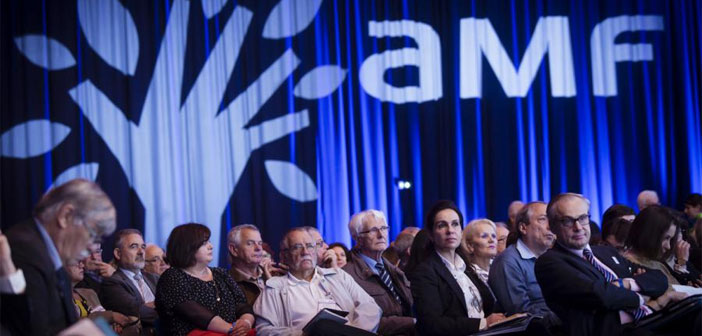The decrease in the general operating grant (DGF) provided by the State to local authorities will amount to 1 billion euros instead of the initially planned 2 billion, declared the head of state before the Congress of Mayors.
François Hollande announced a specific law concerning the reform of the DGF and the continuation of the support fund for local public investment, whose budget will be increased from 1 to 1.2 billion euros.
The head of state responded to the attacks from François Baroin (already campaigning as the future Prime Minister if Nicolas Sarkozy were to win the right-wing LR primary and subsequently the presidential election) by highlighting the shared responsibility of his predecessor Nicolas Sarkozy on this matter: “in 2012, the deficit and debt (…) had reached unsustainable proportions.”
He finally took a jab at the accumulation of mandates. “Sometimes with the accumulation of mandates, the legislator who created the norms is misunderstood by the mayor or the elected official who challenges them; and sometimes it’s the same person,” said the head of state.
The annual Congress of French Mayors gave rise to an unbearable chorus of complaints, reminiscent of a Sicilian or Moorish funeral.
In unison, all these mayors lament the reduction of state grants and accuse the European Union of being responsible for this impoverishment. One might have thought they were dreaming when reading the long list of laments.
The mayors of France naturally avoid explaining the other side of the coin: their colossal and poorly managed recruitments, which have led, for several years, to an endless increase in the share of payroll in the total expenditures of the local authorities. In 2009, civil servant salaries accounted for 29% of expenditures. In 2015, this share rose to 33%: an increase of nearly 15% in six years (from 67 to 80 billion euros).
What is the purpose of these incessant recruitments? Mayors love to claim that they are due to the workload transfers imposed by the State. However, the Laurent report recently highlighted the absence of a measurement of the actual working time in the public service.
It might not be useless for mayors to require their civil servants to work at least as much as the legal duration stipulates… 1,607 hours per year*
The reduction in grants would undoubtedly become a little less painful.
As of January 1, 2014, France did not only have 36,000 municipalities. It was also equipped with 12,159 public establishments for inter-municipal cooperation, each more complex than the other (some with their own taxation, others without).
In other words, for every three municipalities, France has one inter-municipality overseeing them. This is the primary explanation for the explosion of municipal spending in France.
Common sense would dictate aligning France with the practices of its major industrialized neighbors, all of which have significantly reduced their number of municipalities (400 in Great Britain, for example). But this common-sense solution, which allows for greatly reduced costs by sharing services, results in a dispossession of elected officials. How? Fewer elected officials in France?
The fierce resistance of elected officials to this common-sense option is explained by the perpetual resistance of the French elites to change and the loss of privileges… accompanied by the appropriate tears.


